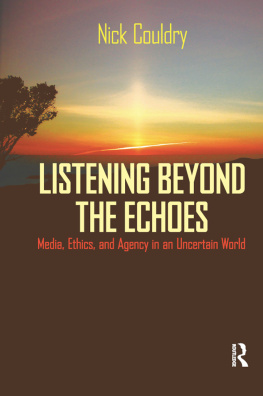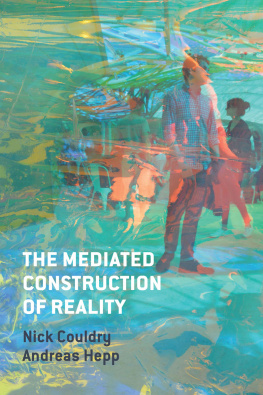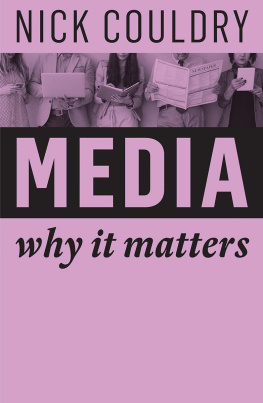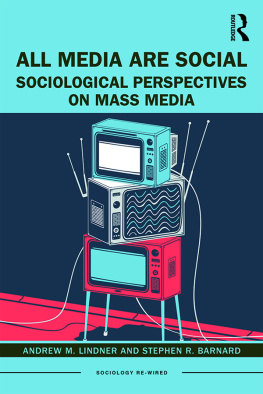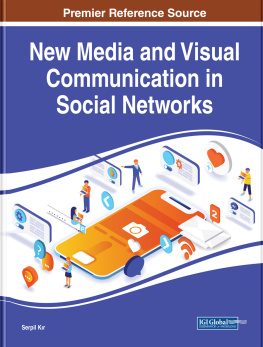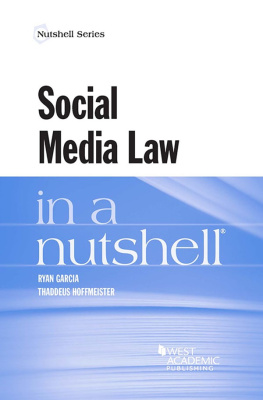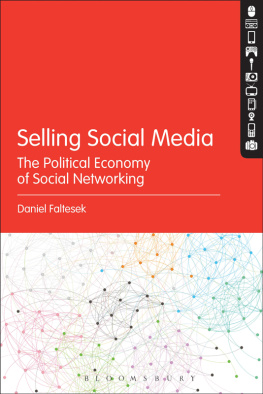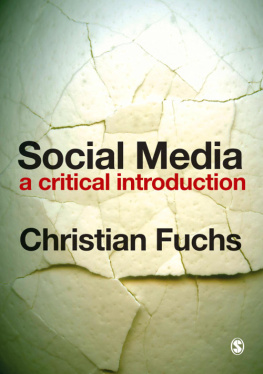Table of Contents
To Louise
Copyright Nick Couldry 2012
The right of Nick Couldry to be identified as Author of this Work has been asserted in accordance with the UK Copyright, Designs and Patents Act 1988.
First published in 2012 by Polity Press
Polity Press
65 Bridge Street
Cambridge CB2 1UR, UK
Polity Press
350 Main Street
Malden, MA 02148, USA
All rights reserved. Except for the quotation of short passages for the purpose of criticism and review, no part of this publication may be reproduced, stored in a retrieval system, or transmitted, in any form or by any means, electronic, mechanical, photocopying, recording or otherwise, without the prior permission of the publisher.
ISBN-13: 978-0-7456-3920-8
ISBN-13: 978-0-7456-3921-5 (pb)
ISBN-13: 978-0-7456-6201-5 (Single-user ebook)
A catalogue record for this book is available from the British Library.
The publisher has used its best endeavours to ensure that the URLs for external websites referred to in this book are correct and active at the time of going to press. However, the publisher has no responsibility for the websites and can make no guarantee that a site will remain live or that the content is or will remain appropriate.
Every effort has been made to trace all copyright holders, but if any have been inadvertently overlooked the publisher will be pleased to include any necessary credits in any subsequent reprint or edition.
For further information on Polity, visit our website: www.politybooks.com
The quotation on p. 33 is taken from Brian Larkin, Signal and Noise: Media, Infrastructure and Urban Culture in Nigeria, 2008 Duke University Press. All rights reserved. Reprinted by permission of the publisher.
Figures and Text Boxes
Figure 1.1 What kind of media theory?
Box 2.1 Twitter and Practice Theory
Box 3.1 The Apprentice , UK
Box 4.1 Jade Goody
Box 6.1 The Ansar Dine Movement in Mali
The axis of reference of our examination must be rotated, but around the fixed point of our real need.
Wittgenstein, Philosophical Investigations , 1978 [1953]: 46
Preface
This book is about medias contribution to social organization and to our sense of living in a world. The books main title needs unpacking. Society remains the usual word for the containers of social organization within which we live, even though the boundaries of national societies no longer contain all the processes that make up our sense of living together and even though some important groups (stateless people, those who migrate regularly across state boundaries to earn enough to eat) do not live simply in one society. World refers to the environments which make sense to us as spaces for living, up to and including the scale of the planet. Media as a term is intended to be narrower than communication, but much wider than the media that have made up traditional media (newspapers, radio, television, film). By media, I mean to cover all institutionalized structures, forms, formats and interfaces for disseminating symbolic content. When virtually all symbolic content is digital and many platforms carry both mass produced content and interpersonal communication, the old research divide between mass media and general communication becomes blurred, but I retain the word media to signal that it is the institutionalized forms of, and platforms for, producing, disseminating and receiving content that are this books primary focus. Media in this sense are inescapably entangled with power relations.
In my subtitle, I signal two wrong turns in understanding the relations between media, society and world that I wish to avoid. As many writers argue, media commentary about media is a poor guide to understanding what is going on with media, and for a number of reasons. Mass media production is directly influenced by marketing practice, particularly the push of those who want to promote new products, interfaces and platforms and claim some hold on the future of media. Media commentators on media (and their sources) are often part of a technophiliac elite, and so their interpretations of whats happening with media are tied up with their own strategies of distinction. Media institutions underlying interests in sustaining their position as a central social infrastructure (as the place we go to find out whats going on) influence the accounts that media outlets give of the difference media make to social life. To avoid the trap of following media hype, research must remain close to what people all people, not just a technophiliac elite are doing with media. You will not therefore find much attention given in this book to early adopters: I am more interested in habits of media use across wider populations. It is only in everyday media practice and everyday assumptions about how to get things done through media, where to get information and images from, what can be circulated and how, that we get a grip on medias relations to society and world. Some of those assumptions have been changing rapidly in the past fifteen years or so.
Talking about medias relations to society and world means, whether explicitly or not, taking a view on what there is in the social world, that is, adopting a social ontology: what types of things, relations and processes are there in the spaces we call social? At some level, this involves drawing on social theory . But here we must avoid a more subtle trap: drawing on a version of social theory that constrains how we understand what is going on with media.
Three types of problem have contributed to this. First, until at least the early 1990s, most sociology and social theory neglected to say anything about media. This only began to be reversed with Anthony Giddenss work on modernity, John Thompsons work on media and modernity and Manuel Castellss work on the rise of the network society, which followed on, although not directly, from important work on the social adaptation and domestication of communications and other technology in the 1980s. such approaches are analytically unhelpful in grasping how media represent the world, and, in particular, how they represent the social and its processes of ordering, since representing the social is one of the main things media institutions do. They are also politically unhelpful because they seem to turn their back on medias role in the production of social knowledge and medias failures to represent the increasingly unequal worlds in which we live.
In thinking about media, I will draw on, and develop, a version of social theory that takes seriously the role that representations, power over representations and how we interact with technologies of representation, play in the possibility of something like social order. Social order is not a given or natural state; it is constructed practically and represented symbolically, and media representations of the order of social life help enact and perform that order. At the level of social theory, the book starts out in chapters 1 and 2 with ontology (what there is in the social and media world). I move on in chapters 3 and 4 to divisions and categorizations (how media divide up the social world, and also claim to bring it together). In chapters 5 and 6, I turn to accumulation the gathering of social resources for building or opposing power and the systemic complexities that arise from accumulation and competition. Chapters 7 and 8 move on to questions of evaluation : the needs that shape how individual groups and cultures select from the infinite variety of media and our broader frameworks for assessing whether media contribute to a life together that we can value and that is just. What binds together these themes is a concern to understand better medias contribution to our possibilities for knowledge, agency and ethics.


